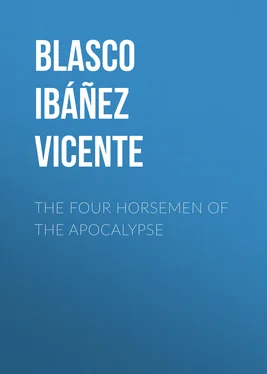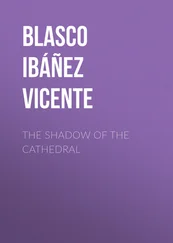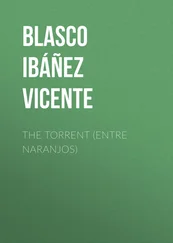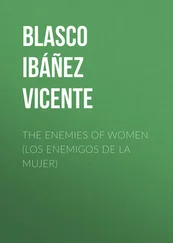Vicente Blasco Ibáñez - The Four Horsemen of the Apocalypse
Здесь есть возможность читать онлайн «Vicente Blasco Ibáñez - The Four Horsemen of the Apocalypse» — ознакомительный отрывок электронной книги совершенно бесплатно, а после прочтения отрывка купить полную версию. В некоторых случаях можно слушать аудио, скачать через торрент в формате fb2 и присутствует краткое содержание. Жанр: foreign_prose, foreign_antique, на английском языке. Описание произведения, (предисловие) а так же отзывы посетителей доступны на портале библиотеки ЛибКат.
- Название:The Four Horsemen of the Apocalypse
- Автор:
- Жанр:
- Год:неизвестен
- ISBN:нет данных
- Рейтинг книги:3 / 5. Голосов: 1
-
Избранное:Добавить в избранное
- Отзывы:
-
Ваша оценка:
- 60
- 1
- 2
- 3
- 4
- 5
The Four Horsemen of the Apocalypse: краткое содержание, описание и аннотация
Предлагаем к чтению аннотацию, описание, краткое содержание или предисловие (зависит от того, что написал сам автор книги «The Four Horsemen of the Apocalypse»). Если вы не нашли необходимую информацию о книге — напишите в комментариях, мы постараемся отыскать её.
The Four Horsemen of the Apocalypse — читать онлайн ознакомительный отрывок
Ниже представлен текст книги, разбитый по страницам. Система сохранения места последней прочитанной страницы, позволяет с удобством читать онлайн бесплатно книгу «The Four Horsemen of the Apocalypse», без необходимости каждый раз заново искать на чём Вы остановились. Поставьте закладку, и сможете в любой момент перейти на страницу, на которой закончили чтение.
Интервал:
Закладка:
To the astonishment of Desnoyers, the German received this onslaught with much humility, nodding his head in agreement with the Patron’s last words.
“If there’s any truth in all this twaddle about titles,” continued Madariaga implacably, “swords and uniforms, what did you come here for? What in the devil did you do in your own country that you had to leave it?”
Now Karl hung his head, confused and stuttering.
“Papa, papa,” pleaded Elena. “The poor little fellow! How can you humiliate him so just because he is poor?”
And she felt a deep gratitude toward her brother-in-law when he broke through his usual reserve in order to come to the rescue of the German.
“Oh, yes, of course, he’s a good-enough fellow,” said Madariaga, excusing himself. “But he comes from a land that I detest.”
When Desnoyers made a trip to Buenos Aires a few days afterward, the cause of the old man’s wrath was explained. It appeared that for some months past Madariaga had been the financial guarantor and devoted swain of a German prima donna stranded in South America with an Italian opera company. It was she who had recommended Karl—an unfortunate countryman, who after wandering through many parts of the continent, was now living with her as a sort of gentlemanly singer. Madariaga had joyously expended upon this courtesan many thousands of dollars. A childish enthusiasm had accompanied him in this novel existence midst urban dissipations until he happened to discover that his Fraulein was leading another life during his absence, laughing at him with the parasites of her retinue; whereupon he arose in his wrath and bade her farewell to the accompaniment of blows and broken furniture.
The last adventure of his life! . . . Desnoyers suspected his abdication upon hearing him admit his age, for the first time. He did not intend to return to the capital. It was all false glitter. Existence in the country, surrounded by all his family and doing good to the poor was the only sure thing. And the terrible centaur expressed himself with the idyllic tenderness and firm virtue of seventy-five years, already insensible to temptation.
After his scene with Karl, he had increased the German’s salary, trying as usual, to counteract the effects of his violent outbreaks with generosity. That which he could not forget was his dependent’s nobility, constantly making it the subject of new jests. That glorious boast had brought to his mind the genealogical trees of the illustrious ancestry of his prize cattle. The German was a pedigreed fellow, and thenceforth he called him by that nickname.
Seated on summer nights under the awning, he surveyed his family around him with a sort of patriarchal ecstasy. In the evening hush could be heard the buzzing of insects and the croaking of the frogs. From the distant ranches floated the songs of the peons as they prepared their suppers. It was harvest time, and great bands of immigrants were encamped in the fields for the extra work.
Madariaga had known many of the hard old days of wars and violence. Upon his arrival in South America, he had witnessed the last years of the tyranny of Rosas. He loved to enumerate the different provincial and national revolutions in which he had taken part. But all this had disappeared and would never return. These were the times of peace, work and abundance.
“Just think of it, Frenchy,” he said, driving away the mosquitoes with the puffs of his cigar. “I am Spanish, you French, Karl German, my daughters Argentinians, the cook Russian, his assistant Greek, the stable boy English, the kitchen servants Chinas (natives), Galicians or Italians, and among the peons there are many castes and laws. . . . And yet we all live in peace. In Europe, we would have probably been in a grand fight by this time, but here we are all friends.”
He took much pleasure in listening to the music of the laborers—laments from Italian songs to the accompaniment of the accordion, Spanish guitars and Creole choruses, wild voices chanting of love and death.
“This is a regular Noah’s ark,” exulted the vainglorious patriarch.
“He means the tower of Babel,” thought Desnoyers to himself, “but it’s all the same thing to the old man.”
“I believe,” he rambled on, “that we live thus because in this part of the world there are no kings and a very small army—and mankind is thinking only of enjoying itself as much as possible, thanks to its work. But I also believe that we live so peacefully because there is such abundance that everyone gets his share. . . . How quickly we would spring to arms if the rations were less than the people!”
Again he fell into reflective silence, shortly after announcing the result of his meditations.
“Be that as it may be, we must recognize that here life is more tranquil than in the other world. Men are taken for what they are worth, and mingle together without thinking whether they came from one country or another. Over here, fellows do not come in droves to kill other fellows whom they do not know and whose only crime is that they were born in an unfriendly country. . . . Man is a bad beast everywhere, I know that; but here he eats, owns more land than he needs so that he can stretch himself, and he is good with the goodness of a well-fed dog. Over there, there are too many; they live in heaps getting in each other’s way, and easily run amuck. Hurrah for Peace, Frenchy, and the simple life! Where a man can live comfortably and runs no danger of being killed for things he doesn’t understand—there is his real homeland!”
And as though an echo of the rustic’s reflections, Karl seated at the piano, began chanting in a low voice one of Beethoven’s hymns—
“We sing the joy of life,
We sing of liberty,
We’ll ne’er betray our fellow-man,
Though great the guerdon be.”
Peace! . . . A few days afterward Desnoyers recalled bitterly the old man’s illusion, for war—domestic war—broke loose in this idyllic stage-setting of ranch life.
“Run, Senor Manager, the old Patron has unsheathed his knife and is going to kill the German!” And Desnoyers had hurried from his office, warned by the peon’s summons. Madariaga was chasing Karl, knife in hand, stumbling over everything that blocked his way. Only his son-in-law dared to stop him and disarm him.
“That shameless pedigreed fellow!” bellowed the livid old man as he writhed in Desnoyers’ firm clutch. “Half famished, all he thinks he has to do is to come to my house and take away my daughters and dollars. . . . Let me go, I tell you! Let me loose that I may kill him.”
And in order to free himself from Desnoyers, he tried further to explain the difficulty. He had accepted the Frenchman as a husband for his daughter because he was to his liking, modest, honest . . . and serious. But this singing Pedigreed Fellow, with all his airs! . . . He was a man that he had gotten from . . . well, he didn’t wish to say just where! And the Frenchman, though knowing perfectly well what his introduction to Karl had been, pretended not to understand him.
As the German had, by this time, made good his escape, the ranchman consented to being pushed toward his house, talking all the time about giving a beating to the Romantica and another to the China for not having informed him of the courtship. He had surprised his daughter and the Gringo holding hands and exchanging kisses in a grove near the house.
“He’s after my dollars,” howled the irate father. “He wants America to enrich him quickly at the expense of the old Spaniard, and that is the reason for so much truckling, so much psalm-singing and so much nobility! Imposter! . . . Musician!”
And he repeated the word “musician” with contempt, as though it were the sum and substance of everything vile.
Читать дальшеИнтервал:
Закладка:
Похожие книги на «The Four Horsemen of the Apocalypse»
Представляем Вашему вниманию похожие книги на «The Four Horsemen of the Apocalypse» списком для выбора. Мы отобрали схожую по названию и смыслу литературу в надежде предоставить читателям больше вариантов отыскать новые, интересные, ещё непрочитанные произведения.
Обсуждение, отзывы о книге «The Four Horsemen of the Apocalypse» и просто собственные мнения читателей. Оставьте ваши комментарии, напишите, что Вы думаете о произведении, его смысле или главных героях. Укажите что конкретно понравилось, а что нет, и почему Вы так считаете.











